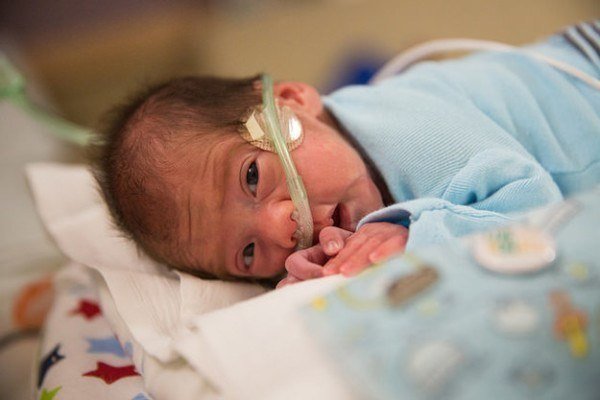Karla Perez and her partner desperately wanted a second baby. But during her 22nd week of pregnancy, she suffered a stroke. Doctors declared her brain dead.
This left her family and the medical team at the Methodist Hospital with a difficult choice, and an even more difficult mission:
To try and keep 22-year-old Karla alive, in order to save the baby growing inside her.

There have only been 15 recorded cases like Karla’s in history; the last time an assisted delivery was done for a brain-dead woman in the US was in 1999. Suffice to say, the procedure was risky.
“There is nothing in the books about how to provide medical care in this situation,” Dr Todd Lovgren, a maternal-fetal medicine specialist, said. “That’s why our team approach was so important. We needed everyone on board with what we were trying to accomplish.”
Rewind a couple of decades earlier: a young Karla was diagnosed with juvenile rheumatoid arthritis, and was told by doctors she may never have children.

Contrary to this, Karla had her first child — a daughter — without any issues. For their second child, she decided to go off her medications in order to get pregnant.
“They really wanted this baby. A healthy pregnancy was more important than her own comfort,” the hospital said.
Karla started getting horrible headaches and on February 8, suddenly collapsed in her home in Nebraska. She had suffered a catastrophic intracranial hemorrhage, and was rushed to the hospital. When she arrived, she was declared brain dead.
It took a medical team of 100 doctors, nurses, and staff to keep Karla alive on life support just long enough so they could deliver her baby via cesarean section. When Karla hit 30 weeks, she showed signs of deterioration. The doctors knew they needed to act quickly in order to save the baby.
With the help of his guardian angels at Methodist Health System, Angel Perez was born on April 4, weighing just 2 pounds and 12.6 ounces.

Neonatologist at Methodist Women’s Hospital Neonatal Intensive Care Unit, Dr Brady Kerr, said that Angel had no severe complications, though he was using a feeding tube. “It’s hard for us to know the long-term outcome due to the rarity of the situation, but we are cautiously optimistic,” Kerr said.
Karla, however, passed away two short days later.
“Angel’s first cry was bittersweet — it meant he was alive, but Karla was gone,” the hospital said.

But Karla didn’t fight the battle alone: nurses, doctors, and her family rallied behind her, cheering her on silently at her bedside.

“You can’t be a part of this team without being affected emotionally,” said Karla’s OB-GYN, Tifany Somer-Shely. “Her family’s resilience throughout this whole thing, with her grim prognosis and the reality of her situation…”
“They never stopped hoping, and they never stopped praying.”

Although baby Angel’s birth was a bittersweet moment, Karla left him both the gift of life, and a legacy of courage that will live on through him.

“I couldn’t be more proud of our medical team and the more than 100 staff who were a part of her care,” the hospital’s vice president Sue Korth said. “Karla’s loss of life was difficult, but the legacy she has left behind is remarkable.













